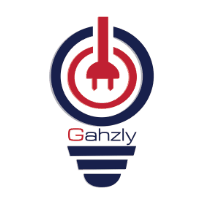Literature Questions
The world is changing at accelerated pace. It becomes more and more like a giant stage with numerous postmodern screenplays flashing tremendously before our eyes.
You do not share this view? This is just a short reminder of the recent news:
Geneva, 10 September 2008. The first beam in the Large Hadron Collider at CERN was successfully steered around the full 27 kilometers of the world’s most powerful particle accelerator at 10h28 this morning.
A European court says the idea a new supercollider project could create a “celestial vacuum” (nice name for the black hole) and eventually consume the Earth is worth discussing, but the project can move forward on schedule anyway.
We wake up each morning to a cheep 70’s SF movie. Just a mirror reflections of the “state of the art” in human evolution. You have to admit it. We split the atom, the center of everything, and in so doing we created chaos.
The Contemporary Poets reflect this chaos. Postmodern literature does the same thing. Pick out the fragments. Out of the chaos, the modernists and the postmodernists pull fragments of life around them. They then leave it to the reader to put these fragments back together.
But do not let yourself think in traditional ways when addressing Modern and Postmodern literature questions. You have to be open to the experience and it will make sense! The modern author intentionally leaves the work open to the readers interpretation. Endless endings, very much like the world we are living in. Are these just a signs of new artistic tendencies or a definitive literature response to literature questions of a new, altered reality?
Literature Response
It is more and more difficult to make today’s media-savvy new generations to acquire a taste in reading classic literature, given the powerful influence of movies, the Internet, and mentioned circumstances.
You can blog, phlog, vlog and podcast, all for free, and get ready, appreciative readers too. You can write and publish your own books (e-books) at a fraction of the cost of a printed book. You may say this is a bright side of life lyrics. Everybody can be a writer and writing doesn’t look formidable anymore.
There are opinions that chatting on the Internet or messaging frequently over the mobile phones impair our children language skills.
Communication and language skills have actually improved with the arrival of the Internet. Basically as we chat more, be it through the net or email or mobile, so we write more, express more and somewhere the communication skills improve and fear of English, French, German, Serbian or any other language itself goes away.
Emerging Literature Trends and Technologies
Understanding symbolism of new literature medium may seem like a scary experience. First step to understanding is observation. So let’s observe what are the main carriers of literature response in new Millennium.
Collaborative Writing
Wikipedia definition of Collaborative Writing (this famous web encyclopedia is an illustrative example of collaborative writing itself): “The term collaborative writing refers to projects where written works are created by multiple people together (collaboratively) rather than individually”.
There is a sayings “teamwork makes the dream work”. Collaborative writing can often lead to books that are richer and more complex than those produced by individuals. Having many people working on a project has added to the creative process. Also, they can be an immense support to one another.And you never know where the story is going! Endless Endings?
Start recognizing post-modernistic symbols?
Another analogy: Instead of sequential method of plotting in traditional writing, Collaborative Writing brings all means off interactivity in creative process. By using tools of communication like Internet, mobile phones, collaborative writing software etc. , the writing process is deconstructed and newly assembled, managed preferable by the group, community, even readers – the audience, rather then being solitude and selfishly controlled by one person.
Literature born from the chaos. Is it another symbol of postmodernism that we have just discovered in applied literature practice?
This is why, despite many tangible complexities related to Collaborative Writing idea, it presents respectful literature phenomenon. It is here to stay. The main challenge in the future will be how to put it in the write, “acceptable to all” context, rather than keep denying its relevance.
Self Publishing
Because of digital technology and the distribution possibilities offered by the Internet, small publishing is more feasible today than ever before. Independent voices can be affordable made available to the general reading public, providing fresh titles, both fiction and non-fiction.
However, establishing and running a small publishing house may seem like a complicated endeavor. Acquiring International Standard Book Numbers, Purchasing a unique Internet domain name for your publishing house website, Determine a niche for your publication efforts, Locating the book printer most appropriate for your needs, Contacting small press friendly book reviewers and sending attractive press kits, Visiting small press trade shows and network with other small publishers, are just few parts in the puzzle that many independent writers are not ready or not willing to deal with.
While big publishing might claim the majority of the profit margin, small publishing remains more and more alive and well among the small, entrepreneurial set.
Literature Visualization
This is a “hot term”, one of those that can make you look smart in the party. However, the roots of the literature visualization reach back in the first half of the last century. We all remember “The War of the Worlds”, by H. G. Wells, famous radio broadcasting, and few of you also, with nostalgia recalls the Jeff Wayne’s Musical Version with such a star like Richard Burton as the narrator-protagonist.
In its broad context, the literature visualization imply all mans of different media interpretations of literature. From recorded storytelling, popular movie stars children’s literature reading video sessions, end big budget movie project, over literature digitization and e-book publishing, to large international projects like it is project Gutenberg for instance. The industry of Book Teaser Videos is more and more prominent.
Another important aspect and interpretation of Literature Visualization term is related to new, novel writing techniques. Summarized in two words: “Show, don’t tell”. Anticipating growing aspirations of new generation of readers that attend a lot of movies and most think visually, authors tend to think of their books as of a mini-movies, with multi-dimensional characters with a definite point of view.
Social Networks Media Broadcasting and new Copyright Models
In the age of WEB 2.0, the Social Networks create a completely new medium for distributing the message to the masses.
Music Industry was the fist to acknowledge the full potential of the Internet and on line Communities. Many popular music stars and bands published their work on Internet first. They timely understood the potential of live and proximate interaction with their audience and the benefits that it brings short-term and long-terms respectively.
The same processes are developing within the literature community. The major issue of Copyrights was successfully digested by introduction of ingenious Creative Common License that offer creators a best-of-both-worlds way to protect their works while encouraging certain uses of them.
Literature is changing inexorably, following closely the global trends. For literature scholars, authors and consumers, it is important to recognize the meaning of both contemporary literature questions and symbolism of genuine literature response to new-age challenges. This new comprehension will add quality tools to our literature arsenal letting us enjoy it in various, new, exciting ways.
[ad_2]AUTOPOST by BEDEWY VISIT GAHZLY


